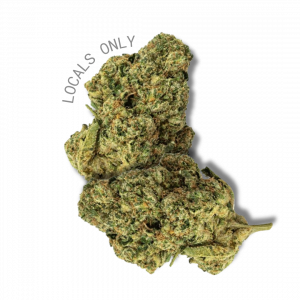

Psychedelics, also known as hallucinogens, are a class of psychoactive substances that alter perception, mood, and cognitive processes. These substances can induce profound changes in consciousness, leading to experiences such as hallucinations, altered sense of time and space, and intense emotional and spiritual experiences. Some of the most well-known psychedelics include LSD (lysergic acid diethylamide), psilocybin (found in magic mushrooms), and DMT (dimethyltryptamine).
These substances have been used for centuries in various cultural and religious practices for their mind-altering effects. Psychedelics work by interacting with serotonin receptors in the brain, leading to changes in the way information is processed and perceived. The effects of psychedelics can vary widely depending on factors such as dosage, set and setting, and individual differences in brain chemistry.
While some people may have profound and positive experiences with psychedelics, others may experience intense anxiety, paranoia, or even psychosis. Due to their potential for both positive and negative effects, psychedelics have been the subject of much controversy and debate. In recent years, there has been a resurgence of interest in the therapeutic potential of psychedelics for mental health disorders, leading to a growing body of research on their effects and potential benefits.
The use of psychedelics dates back thousands of years, with evidence of their use in various cultural and religious practices around the world. For example, indigenous cultures in the Americas have used psychedelic plants such as peyote and ayahuasca in spiritual ceremonies for centuries.
In the 1950s and 1960s, psychedelics gained popularity in Western society as a result of their association with the counterculture movement and the work of researchers such as Timothy Leary and Aldous Huxley. However, due to concerns about their potential for abuse and harm, psychedelics were classified as Schedule I substances in the United States in the 1970s, effectively halting most research on their therapeutic potential.
In recent years, there has been a resurgence of interest in the therapeutic use of psychedelics for mental health disorders. A growing body of research has shown promising results for the use of psychedelics in the treatment of conditions such as depression, anxiety, PTSD, and addiction. Clinical trials have demonstrated that psychedelics can produce rapid and sustained improvements in mood and symptoms, with some studies showing that a single dose of psilocybin can have lasting effects on depression and anxiety.

The potential therapeutic effects of psychedelics on mental health disorders have been a topic of increasing interest and research in recent years. Studies have shown that psychedelics such as psilocybin and LSD can produce profound changes in consciousness that may help individuals break free from patterns of negative thinking and behavior. This has led to investigations into their potential use in treating conditions such as depression, anxiety, PTSD, and addiction.
Research has shown that psychedelics can produce rapid and sustained improvements in mood and symptoms for individuals with treatment-resistant depression. Studies have also demonstrated promising results for the use of psychedelics in the treatment of anxiety disorders, with some research suggesting that they may help individuals confront and process traumatic experiences. Additionally, there is growing evidence to support the use of psychedelics in the treatment of addiction, with studies showing that they can help individuals break free from patterns of substance abuse.
While the exact mechanisms underlying the therapeutic effects of psychedelics are not fully understood, it is believed that they may work by promoting neuroplasticity and enhancing emotional processing. Psychedelics have been shown to increase connectivity between brain regions involved in emotion regulation and self-referential processing, which may help individuals gain new perspectives on their thoughts and feelings. These findings have sparked a growing interest in the potential benefits of psychedelics for mental health disorders and have led to a resurgence of research in this area.
| Psychedelic | Neurological Effects |
|---|---|
| LSD | Altered perception, mood, and thought patterns |
| Psilocybin | Increased brain connectivity and reduced activity in the default mode network |
| DMT | Altered sense of time, space, and self-identity |
| Mescaline | Enhanced sensory perception and altered emotional states |
The neurological effects of psychedelics have been a topic of much interest and research in recent years. Studies have shown that psychedelics such as psilocybin, LSD, and DMT can produce profound changes in brain activity and connectivity that may underlie their therapeutic effects. These substances work by interacting with serotonin receptors in the brain, leading to alterations in the way information is processed and perceived.
Research has shown that psychedelics can increase connectivity between brain regions involved in emotion regulation and self-referential processing. This may help individuals gain new perspectives on their thoughts and feelings, leading to changes in mood and behavior. Additionally, psychedelics have been shown to reduce activity in the default mode network, a brain network involved in self-referential thinking and rumination.
This may help individuals break free from patterns of negative thinking and behavior, leading to improvements in mood and symptoms. Furthermore, studies have demonstrated that psychedelics can promote neuroplasticity, or the brain’s ability to reorganize itself by forming new neural connections. This may underlie their ability to produce lasting changes in mood and behavior, as well as their potential use in treating conditions such as depression, anxiety, PTSD, and addiction.
These findings have sparked a growing interest in the neurological effects of psychedelics and have led to a resurgence of research in this area.
The potential benefits of psychedelics for mental health have been a topic of increasing interest and research in recent years. Studies have shown that psychedelics such as psilocybin and LSD can produce rapid and sustained improvements in mood and symptoms for individuals with treatment-resistant depression. Additionally, research has demonstrated promising results for the use of psychedelics in the treatment of anxiety disorders, PTSD, and addiction.
One of the key potential benefits of psychedelics for mental health is their ability to produce profound changes in consciousness that may help individuals break free from patterns of negative thinking and behavior. Psychedelics have been shown to increase connectivity between brain regions involved in emotion regulation and self-referential processing, which may help individuals gain new perspectives on their thoughts and feelings. Additionally, these substances have been shown to reduce activity in the default mode network, a brain network involved in self-referential thinking and rumination.
This may help individuals break free from patterns of negative thinking and behavior, leading to improvements in mood and symptoms. Furthermore, research has shown that psychedelics can promote neuroplasticity, or the brain’s ability to reorganize itself by forming new neural connections. This may underlie their ability to produce lasting changes in mood and behavior, as well as their potential use in treating conditions such as depression, anxiety, PTSD, and addiction.
These findings have sparked a growing interest in the potential benefits of psychedelics for mental health and have led to a resurgence of research in this area.

While psychedelics have shown promise in treating mental health disorders, it’s essential to acknowledge the risks associated with their use. These substances can induce profound changes in consciousness, leading to intense emotional and spiritual experiences. However, this can also result in negative outcomes, such as intense anxiety, paranoia, or even psychosis, for some individuals.
Another significant concern is the potential for abuse and harm associated with psychedelic use. Due to their potential for abuse and lack of accepted medical use, psychedelics are classified as Schedule I substances in many jurisdictions. This classification has hindered researchers’ ability to conduct studies on their therapeutic potential, resulting in a lack of rigorous scientific evidence on their safety and efficacy.
Furthermore, there are legal and ethical challenges associated with using psychedelics for mental health treatment. Although some jurisdictions have decriminalized or legalized their use for therapeutic purposes, many legal barriers remain. Additionally, there are ethical considerations surrounding the use of psychedelics in clinical settings, including issues related to informed consent, patient safety, and professional conduct.
The resurgence of interest in the therapeutic potential of psychedelics for mental health disorders has led to a growing body of research on their effects and potential benefits. There is now a renewed focus on understanding the neurological mechanisms underlying the therapeutic effects of psychedelics, as well as their potential use in treating conditions such as depression, anxiety, PTSD, and addiction. One promising area of research is the use of psychedelics in combination with psychotherapy.
Studies have shown that psychedelic-assisted therapy can produce rapid and sustained improvements in mood and symptoms for individuals with treatment-resistant depression, anxiety disorders, PTSD, and addiction. This approach involves administering a single dose of a psychedelic substance in a controlled setting under the guidance of trained therapists, followed by integration sessions to help individuals process their experiences. Additionally, there is growing interest in exploring the use of psychedelics for preventive mental health care.
Some researchers believe that psychedelics may have the potential to promote emotional resilience and well-being by promoting neuroplasticity and enhancing emotional processing. This has led to investigations into their potential use as preventive interventions for mental health disorders. Furthermore, there is a growing movement to decriminalize or legalize the use of psychedelics for therapeutic purposes.
Some jurisdictions have already taken steps to decriminalize or legalize their use for mental health treatment, leading to increased access to these substances for research and clinical practice. In conclusion, while there are risks and challenges associated with the use of psychedelics for mental health treatment, there is also growing evidence to support their potential benefits. The resurgence of interest in psychedelic research has led to a renewed focus on understanding their effects on the brain and behavior, as well as their potential use in treating conditions such as depression, anxiety, PTSD, and addiction.
As research continues to advance in this area, it is likely that we will gain a better understanding of the therapeutic potential of psychedelics for mental health disorders and develop new approaches to treatment that integrate these substances into clinical practice.
If you’re interested in learning more about the potential benefits of psychedelics on mental health, you may want to check out this article on 4localsonly.net. The article discusses the growing interest in the therapeutic use of psychedelics and how they may have a positive impact on mental health. It also explores the delivery of magic mushrooms in Tysons Corner, Virginia, and the potential benefits for residents in Northern Virginia.
Psychedelics are a class of hallucinogenic drugs that can alter a person’s perception, mood, and cognitive processes. Common psychedelics include LSD, psilocybin (magic mushrooms), and DMT.
Research suggests that psychedelics may have potential therapeutic effects on mental health conditions such as depression, anxiety, PTSD, and addiction. Some studies have shown that psychedelics can lead to long-lasting improvements in mood, cognition, and overall well-being.
While some research suggests potential therapeutic benefits, psychedelics can also have risks, including the potential for adverse psychological reactions, such as panic attacks, paranoia, and psychosis. Additionally, the use of psychedelics in unsupervised or recreational settings can lead to dangerous or harmful behaviors.
Psychedelics are being studied in clinical trials as potential treatments for various mental health conditions. These studies are exploring the safety and efficacy of psychedelics when used in controlled, therapeutic settings, often in combination with psychotherapy.
Psychedelics are currently classified as Schedule I substances in the United States, meaning they are illegal to manufacture, possess, or distribute for any purpose. However, there is growing interest in reclassifying psychedelics for medical use, and some jurisdictions have decriminalized or legalized psychedelics for therapeutic purposes.